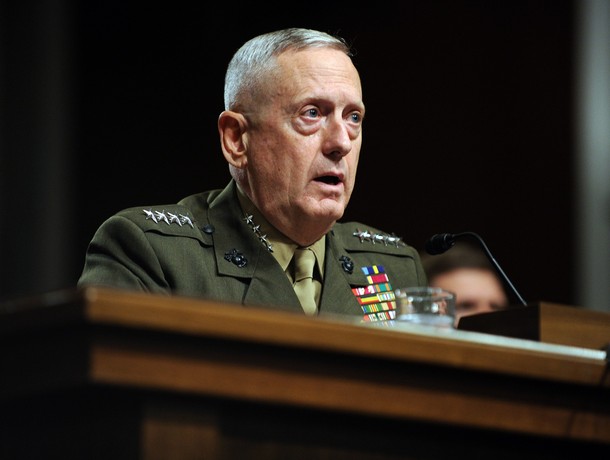
The episode that led to the resignation of U.S. Army Gen. Stanley McChrystal as commander of U.S. and NATO forces in Afghanistan has created an opportunity for constructing the foundation for a more stable region.
Much will rest on the four U.S. flag and general officers with overarching responsibilities for the region and whether their exceptional abilities will overcome the huge obstacles in Afghanistan ranging from a dysfunctional, weak central government in Kabul to traditional Afghan resistance to foreign armies no matter the intent.
U.S. Army Gen. David Petraeus is the best known and has replaced McChrystal. Nominated to replace and oversee Petraeus as commander Central Command is U.S. Marines Gen. James Mattis. On the NATO side and Petraeus’ other boss, U.S. Navy Adm. James Stavridis remains supreme allied commander-Europe. U.S. Navy Adm. Mike Mullen, of course, is chairman of the Joint Chiefs of Staff, the top U.S. military officer.
All four have remarkable records of achievement. Two have doctorates and a third is regarded as the best-read officer in the military. Petraeus won his spurs several times over in Iraq as commander of the 101st Airborne; lead trainer for the new Iraqi army; and overall commander. His interaction with then U.S. Ambassador to Iraq Ryan Crocker was a textbook case of political-military coordination and cooperation.
Earlier in his career, Petraeus was shot in the chest during a training exercise and survived thanks to the surgical skills of Dr. Bill Frist, the future U.S. Senate majority leader. Demanding to return to duty just days after surgery, Petraeus demonstrated his fitness by doing an obscene number of push-ups.
Toughness and push-ups aren’t prerequisites for success in Afghanistan. They do however reflect the character and constitution of the man.
Mattis led the Marine Expeditionary Brigade into Kandahar in the fall of 2001 during Operation Enduring Freedom, the first large scale U.S. ground operation of the Afghan campaign. Had it not been for a misjudgment by the overall commanding general to commit forces, other than Mattis’ brigade, who weren’t acclimated or prepared for high-altitude fighting in Tora Bora, Osama bin Laden might not have escaped.
Mattis’ campaign plan for hunting bin Laden down was based on how the U.S. Army captured Geronimo over a century and quarter earlier in similar terrain. Unfortunately, it wasn’t used.
Leading the First Marine Division during the Second Iraq War in 2003, Mattis established a reputation as one of the Marine’s most able division commanders certainly since Vietnam. Leading from the front in the march to Baghdad, during a fierce fire fight he found himself next to a young Marine rifleman. By his own admission, Mattis asked a question so dumb it could only have come from a general.
“How’s it going Marine?” Mattis inquired.
“Great sir,” answered the young Marine blazing away at the enemy. “I’m taking the fun out of fundamentalist.”
Mattis went on to take over the Marine Concept and Development Center in Quantico, Va. He and Petraeus jointly wrote the counterinsurgency manual before being promoted to general and assigned as commander, Joint Forces Command and allied commander Transformation in Norfolk, Va.
Stavridis held commands at every level winning awards for best ship in the fleet along the way. From 2002-04 he commanded a carrier battle group engaged in action in Afghanistan and Iraq. He actually wrote not just the book but two books on his profession: “Command at Sea” and “Destroyer Captain.”
Serving in the Pentagon as executive assistant for the secretary of the Navy and later as military assistant to the secretary of defense, he was promoted to admiral and sent to command Southern Command with responsibility for Latin America. While there he dramatically reorganized his staff reflecting an all-of-government approach bringing to bear both military and non-military capacity something needed in Afghanistan. He then became the first admiral chosen to head NATO as supreme allied commander.
Mullen is one of the finest chairmen and most experienced flag officers this country has had with four unprecedented assignments as a four star. His close and continuous involvement with and many trips to Pakistan have been vital in sustaining this relationship.
Now the question is if this team of the best we can muster can turn the tide in Afghanistan.
For that to happen, this team will have to operate more as a board of directors in direct support of Petraeus to ensure the fullest coordination of all U.S. and allied assets. One possibility is for Mattis and Stavridis to make a joint trip to the region after Mattis is confirmed as a statement of intent.
But no matter how capable this team is, and it is very capable, a long hard slog still awaits us in Afghanistan. The trick will be utilizing these talents to turn this situation around.
Harlan Ullman is Senior Advisor at the Atlantic Council, Chairman of the Killowen Group that advises leaders of government and business, and a frequent advisor to NATO. In full disclosure, he sits on the pro bono senior advisory group for Supreme Allied Commander Europe. This article was syndicated by UPI. Photo credit: Getty Images.
Image: James%20Mattis.jpg
